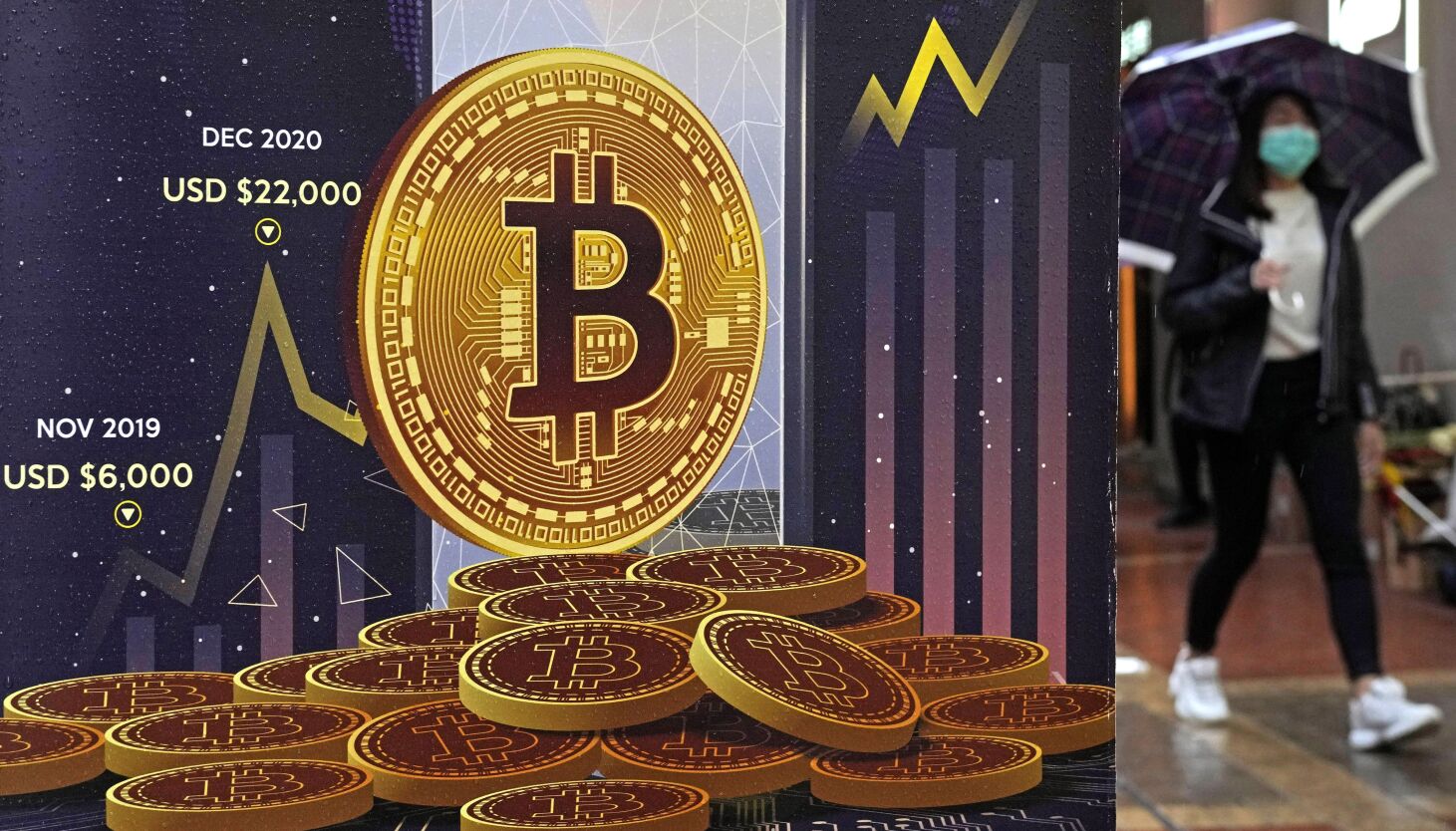An advertisement for Bitcoin cryptocurrency is displayed on a street in Hong Kong, on Feb. 17, 2022. California on Wednesday, May 4, 2022,
Kin Cheung, Associated Press
Bitcoin is a type of digital currency, or cryptocurrency, in which coins are generated and transacted in an online exchange system (blockchain) without a central authority, such as a government entity or a banking institution. Bitcoin is the largest cryptocurrency in the world, valued at over $385 billion as of Sept. 27. This means that Bitcoin would rank in the top 30 in the world in terms of total gross domestic product — between United Arab Emirates ($383 billion) and Norway ($399 billion).
One of the primary roles of Bitcoin is supposed to be money. However, to be classified as money, Bitcoin must satisfy at least three basic functions: (1) medium of exchange, (2) store of value and (3) unit of account. But does Bitcoin currently meets these requirements?
Is Bitcoin used as a medium of exchange, or generally accepted as payment, for common goods and services, like groceries? The short answer is yes, but it is much more complicated than that. There are more than 300,000 small businesses operating in Utah, and only 12 accept Bitcoin as a direct form of payment. There are an additional 72 Bitcoin ATMs located at businesses across Utah. The heatmap below shows the concentration of these Bitcoin services offered in the state.
A heat map of Utah cryptocurrency services shows where most are located in the state.
Todd Griffith
These results suggest that less than 0.03% of small businesses in Utah offer Bitcoin services directly. Therefore, the number of small businesses that accept Bitcoin is still low relative to conventional payment systems, such as Visa, Mastercard, Discover and Venmo. However, PayPal just recently announced that it would support the transfer of Bitcoin, which will enable more trade and higher usage.
While it does not seem like Bitcoin will be the primary medium of exchange any time soon, the growth of businesses accepting Bitcoin around the world is increasing at a relatively fast rate.
In economics, a store of value means that an asset is relatively stable and does not depreciate over time. Is Bitcoin a store of value?
To answer this question, I gathered daily exchange rates for the U.S. dollar index, five foreign currencies (U.S. dollars, euros, British pounds, Canadian dollars and Australian dollars) and Bitcoin. I then looked at the variability in these rates over a five-year period (September 2017 to September 2022). Bitcoin prices fluctuate, on average, by about 77.22% per year. In contrast, the exchange rates for U.S. dollars, euros, British pounds, Canadian dollars and Australian dollars only vary, on average, by about 4.8%, 8.6%, 10.4%, 8.7% and 12.8% per year, respectively. This means that over this sample period, Bitcoin was about 8.5 times more volatile than the currencies collectively and 16 times more volatile than the U.S. dollar index.
Of course, any currency is going to be somewhat volatile if people are using it, but too much instability/uncertainty can be problematic. For instance, Bitcoin reached its highest valuation point on Nov. 7, 2021, at $65,466.84 per coin and has dropped to $19,631.63 as of Sept. 27, 2022. Therefore, your $250 per week grocery budget in Bitcoin at its peak, would only be worth about $75 10 months later.
Can Bitcoin be used as a measurement for valuing goods and services (unit of account), such as a TV? To do so, Bitcoin must be divisible, countable and fungible. It may surprise you to learn that Bitcoin is much more divisible than other government-issued currencies, as it can be broken up into eight decimal places, with the smaller units called satoshis. In comparison, the U.S. dollar can only be divided into two decimal places for everyday use — pennies. Bitcoin is also countable because its units can easily be added, subtracted, multiplied and divided to account for profits, losses, income, expenses and wealth. Moreover, Bitcoin is fungible in the sense that one Bitcoin is always equal to another Bitcoin. Thus, the answer to the original question is yes, you can value your TV in Bitcoin.
Overall Bitcoin has the potential to be a safer and more cost-effective money source, but that has yet to be achieved in the current market landscape. A world in which you use Bitcoin to buy everyday goods and services, such as groceries, is still far away, but it is possible. There are nearly 10,000 different cryptocurrencies trading worldwide, and it is only a matter of time until someone creates the technology that solves the issues outlined above.
Todd Griffith is an assistant professor of finance in the Jon M. Huntsman School of Business at Utah State University.
Copyright © 2022 Deseret News Publishing Company. All Rights Reserved


